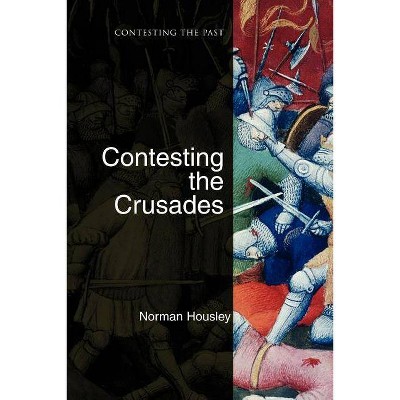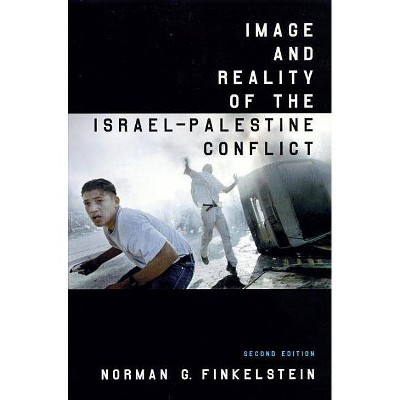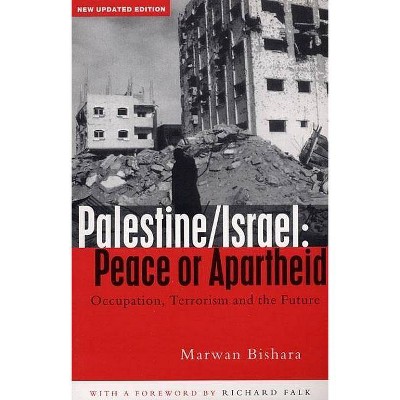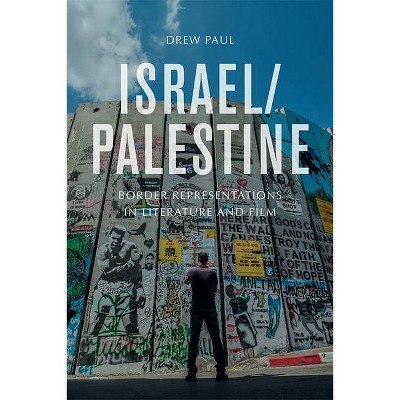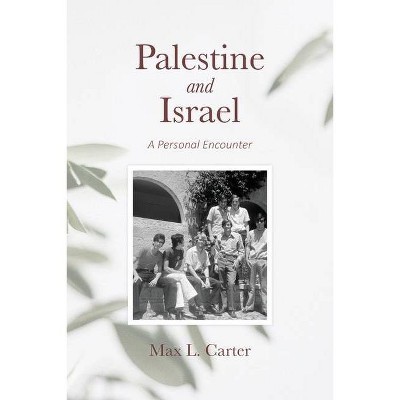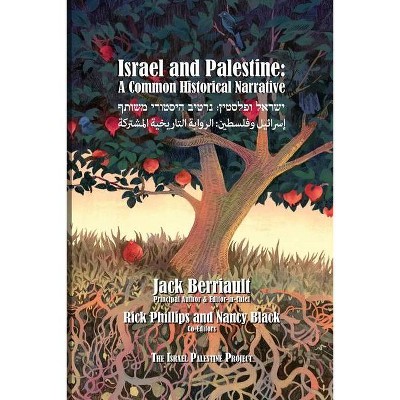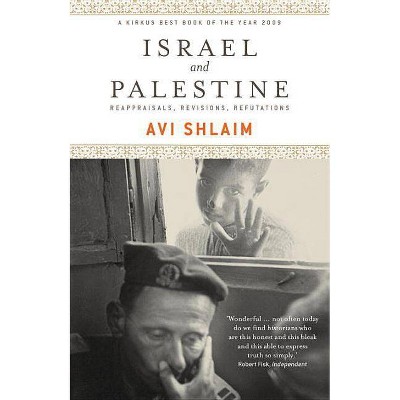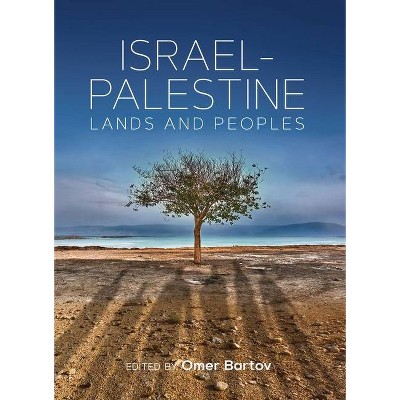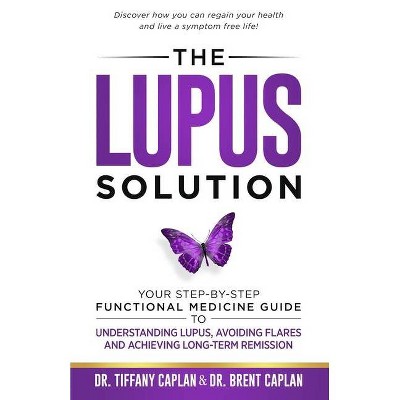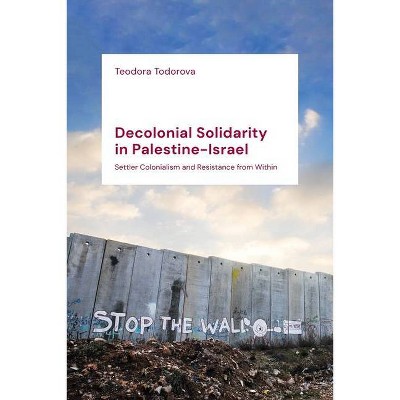The Israel-Palestine Conflict - (Contesting the Past) 2nd Edition by Neil Caplan (Paperback)
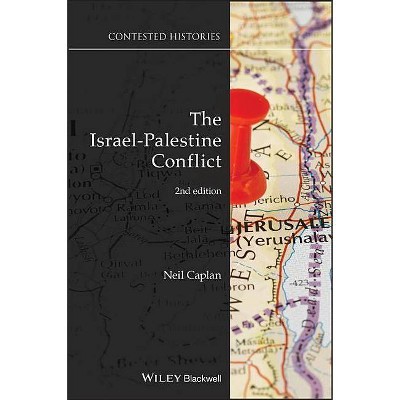
Similar Products
Products of same category from the store
AllProduct info
<p/><br></br><p><b> About the Book </b></p></br></br>"This new edition seeks, first, to update the timeline of events to include a number of significant developments that have taken place during the ten years since publication of the first edition. To this end, the original concluding chapter of Part II ("Histories in Contention") has been replaced by two new chapters. Secondly, academic scholarship on the subject continues to grow, along with more popular presentations of the conflict. Accordingly, I have expanded endnote references to include selected new publications"--<p/><br></br><p><b> Book Synopsis </b></p></br></br><p>One of the 10 Must-Read Histories of the Palestine-Israel Conflict<br />--<b>Ian Black</b>, Literary Hub, on the 100<sup>th</sup> anniversary of the Balfour Declaration</p> <p><b>The new edition of the acclaimed text that explores the issues continuing to define the Israeli-Palestinian conflict</b></p> <p>Numerous instances of competing, sometimes incompatible narratives of controversial events are found throughout history. Perhaps the starkest example of such contradictory representations is the decades-long conflict between Israel and Palestine. For over 140 years, Israelis, Palestinians, and scores of peacemakers have failed to establish a sustainable, mutually-acceptable solution. <i>The Israel-Palestine Conflict </i>introduces the historical basis of the dispute and explores both the tangible issues and intangible factors that have blocked a peaceful resolution. Author Neil Caplan helps readers understand the complexities and contradictions of the conflict and why the histories of Palestine and Israel are so fiercely contested.</p> <p>Now in its second edition, this book has been thoroughly updated to reflect the events that have transpired since its original publication. Fresh insights consider the impact of current global and regional instability and violence on the prospects of peace and reconciliation. New discussions address recent debates over two-state versus one-state solutions, growing polarization in public discourse outside of the Middle East, the role of public intellectuals, and the growing trend of merging scholarship with advocacy. Part of the Wiley-Blackwell <i>Contested Histories</i> series, this clear and accessible volume: </p> <ul> <li>Offers a balanced, non-polemic approach to current academic discussions and political debates on the Israel-Palestine conflict</li> <li>Highlights eleven core arguments viewed by the author as unwinnable</li> <li>Encourages readers to go beyond simply assigning blame in the conflict</li> <li>Explores the major historiographical debates arising from the dispute</li> <li>Includes updated references and additional maps</li> </ul> <p>Already a standard text for courses on the history and politics of the Middle East, <i>The Israel-Palestine Conflict </i>is an indispensable resource for students, scholars, and interested general readers.</p><p/><br></br><p><b> From the Back Cover </b></p></br></br><p>One of the "10 Must-Read Histories of the Palestine- Israel Conflict"</br> <i>Ian Black, Literary Hub, on the 100th anniversary of the Balfour Declaration</i> <p><b>The new edition of the acclaimed text that explores the issues continuing to define the Israeli-Palestinian conflict</b> <p>Numerous instances of competing, sometimes incompatible narratives of controversial events are found throughout history. Perhaps the starkest example of such contradictory representations is the decades-long conflict between Israel and Palestine. <i>The Israel-Palestine Conflict</i> introduces<i></i> the historical basis of the dispute and explores both the tangible issues and intangible factors that have blocked a peaceful resolution. Author Neil Caplan helps readers understand the complexities and contradictions of the conflict and why the histories of Palestine and Israel are so fiercely contested. <p>Fresh insights consider the impact of current global and regional instability and violence on the prospects of peace and reconciliation. New discussions address recent debates over two-state versus one-state solutions, growing polarization in public discourse outside of the Middle East, the role of public intellectuals, and the growing trend of merging scholarship with advocacy. Part of the Wiley-Blackwell <i>Contesting the Past</i> series, this clear and accessible volume: <ul> <li>Offers a balanced, non-polemic approach to current academic discussions and political debates on the Israel-Palestine conflict</li> <li>Highlights eleven core arguments viewed by the author as unwinnable</li> <li>Encourages readers to go beyond simply assigning blame in the conflict</li> <li>Explores the major historiographical debates arising from the dispute</li> <li>Includes updated references and additional maps</li> </ul> <p>Already a standard text for courses on the history and politics of the Middle East, <i>The Israel-Palestine Conflict</i> is an indispensable resource for students, scholars, and general-interest readers.<p/><br></br><p><b> About the Author </b></p></br></br><p>A native of Montreal, <b>Neil Caplan</b> received his Ph.D. from the London School of Economics and Political Science. Since retiring from teaching in 2008 he has held an affiliate position in the History Department of Concordia University and is Scholar-in-Residence at Vanier College, both in Montreal. He is the author of numerous scholarly articles and eight books, including <i>Futile Diplomacy</i>, a 4-volume documentary history of Zionist-Arab and Arab-Israeli negotiations, 1913-1956 and (with Laura Z. Eisenberg) <i>Negotiating Arab-Israeli Peace: Patterns, Problems, Possibilities</i>. His most recent publication is <i>My Struggle for Peace: The Diary of Moshe Sharett, 1953-1956</i>, co-edited with Yaakov Sharett.</p>
Price History
Price Archive shows prices from various stores, lets you see history and find the cheapest. There is no actual sale on the website. For all support, inquiry and suggestion messages communication@pricearchive.us
